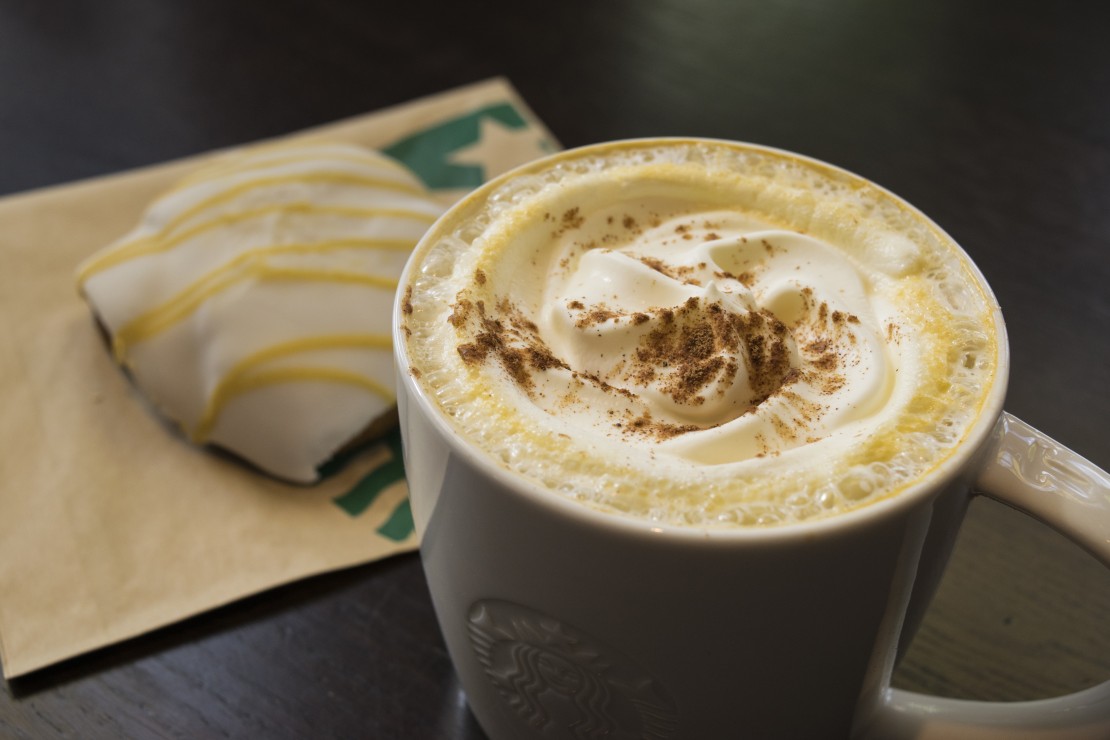Sarah Finley is a contributing writer at The Peak, Simon Fraser University’s student paper. This article was originally published on Sept. 12.
BURNABY — It’s not often that I find myself defending corporations and their capitalist ploys, but when I read Brian Hickey’s article in the PhillyVoice titled “Enough with the pumpkin-spice craze, sheeple” — yes, Hickey really used the term ‘sheeple’ — I felt defensive.
Bashing Starbucks’ widely-known autumn beverage is nothing new. Hickey certainly isn’t the only one that has complained about the annual “pumpkinspiceification,” as he puts it, of everyone’s favourite products, from beer to hummus to waffles. However, Hickey is certainly among the more aggressive of the crowd.
Referring to the deluge of pumpkin-themed items as a “cultural abomination” and its consumers as “culinary sheeple,” Hickey argues that the popularity of the pumpkin is evidence that “people will drop hundreds of millions of dollars if an effective marketing campaign/conspiracy hits its sweet spot.”
Um, obviously.
This isn’t new information. This is quite literally how capitalism and marketing work. And of all the capitalist schemes in the world, why is the romanticization of pumpkin so abominable? In 2011, Dr. Pepper launched an ad campaign with the catchphrase “it’s not for women.” At least Starbucks isn’t using misogyny to sell its products. In fact, its marketing is pretty innocent. The romanticization of seasonal changes should hardly be considered problematic. For those of us who prefer the sunshine of the season prior, every little bit of romanticization helps.
If I want to cope with the unhappier changes — gloomy weather, spending my weekends typing instead of surfing — by buying myself a relatively inexpensive pumpkin-flavoured latte, I’ll fucking do it.
Hickey calls on Len Gigante, a man who literally tried to launch a national anti-pumpkin day five years ago, for backup. Gigante is quoted saying, “It’s just out of hand . . . We don’t eat Christmas trees.”
That’s true, we certainly don’t eat Christmas trees. And most people don’t eat raw pumpkin, either. But if this is an argument that Starbucks frequenters don’t match their winter craze to their autumnal one, Gigante clearly must have forgotten about the peppermint, gingerbread, and eggnog-flavoured lattes that roll into town around mid-November.
Starbucks is an international corporation with no shortage of problems. With paper cups that can’t be recycled, its environmental footprint is bigger than the pumpkin craze itself, and Starbucks CEO Howard Schultz is infamous for neglecting to follow through on promises made by the company.
These empty promises include providing employees with their schedules a minimum of 10 days ahead of time, and a guarantee of no “clopening” shifts — shifts where the scheduled closer completes their shift only to be the first employee to arrive the next day. Depending on the operational hours of the location, this can mean having as little as five hours’ time between shifts.
If you’re going to get angry about capitalism, I’ll join you in a heartbeat. If you want to boycott Starbucks in favour of local coffee shops (who will also likely feature pumpkin-flavoured products), I’ll buy your drink. But if your inspiration is contempt for a seasonal vegetable, I’ll pass.
In fact, I’ll probably go buy a PSL out of spite.







